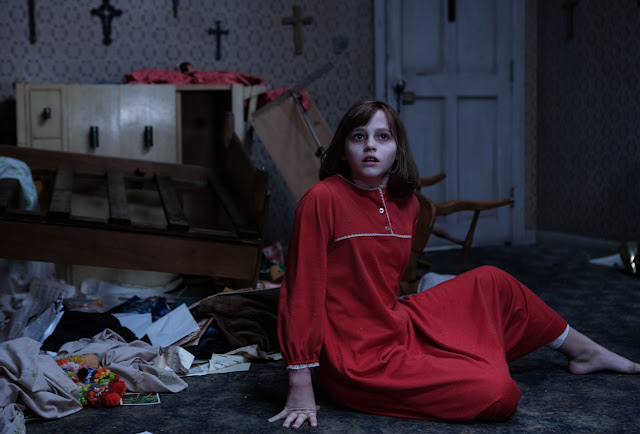"An
evocative account of social horrors in post-WWII Germany.”
It’s Germans versus Germans in Labyrinth of Lies (German: Im Labyrinth des Schweigens), the
debut feature of German director and co-writer Giulio Ricciarelli which is
inspired by the Frankfurt Auschwitz trials. In this socio-historical docudrama,
an incorruptible young prosecutor goes after the war perpetrators who settled
into “normalcy” in post-Nazi Germany.
The film’s dominating premise is foreshadowed by its
perplexing prologue set in 1958 Frankfurt. Simon Kirsch (Johannes Krisch), a
Nazi concentration camp survivor, is fumbling for some matches when a
schoolteacher goes up to him and offers him a light. To his horror, Simon
recognizes the kind Samaritan as one of his guards in Auschwitz.
Fast forward, Johann Radmann (Alexander Fehling) is
introduced as an energetic and upright public prosecutor who has become
frustrated dealing with traffic offenses. His big break soon comes when Thomas
Gneilka (Andre Szymanski), a persistently annoying journalist, visits the
Prosecutor General’s office to seek justice for his artist friend Kirsch.
Despite being told to ignore the case, Radmann probes and founds out that the
teacher is a member of the Waffen SS in Auschwitz. Worse, he continues to teach
at the local school even when Radmann informs the Minister of Education about
it.
His initial failure does not deter him and teaming up with
Gneilka again, Radmann manages to acquire his first hard proof that some men
were voluntarily involved in Nazi killing. Prosecutor Gen. Fritz Bauer (the
late Gert Voss, to whom this film is dedicated) gives his blessing and Radmann
continues his investigation and soon build a case against as many as 8,000
people who worked at Auschwitz. In spite of being ridiculed by his colleagues,
including senior public prosecutor Walter Friedberg (Robert Hunger-Buehler),
Radmann further delves into the labyrinth that will open up painful truths and
test his resolve.
Labyrinth of Lies
is a sensitive and intelligent depiction of a complex moral issue that
challenges one social and historical perspective. Less than a decade and a half
after prisoners of concentration camp were liberated, Germany appears to have
buried its horrific past. Nazi men vanish into a peaceful civilization; some hold
high offices while others blend in with common people. Unbelievably, younger
generations have no solid knowledge of what is Auschwitz and what it
represents. As its title suggests, those who knew the past hide it or simply
choose to remain silent.
With its richly-detailed screenplay, the film shatters the
status quo with the quest for truth of its fictional lead. It is Radmann’s
coming-of-age story, his growth from being ignorant of his country’s history up
to his eventual maturation into an ambitious and idealistic principled young
German. But it is not an easy journey as there are countless hurdles. With
impressive visual impact, the movie details the amount of work and Radmann’s
dedication needed to complete the task. From browsing through the records of
600,000 men kept in chaotic pile in the U.S. Army Document Center, Radmann
finds himself going through all of Germany’s telephone directories to contact
his suspects since the authorities refuse to cooperate with him.
The more he digs into the past, the more Radmann is being
pulled into different directions. In his determination to find the elusive Dr.
Josef Mengele, he neglects to pursue smaller fishes, endangering the case at
one point. In the process, Radmann does not only learn about Auschwitz but also
about his fated past which made him question his self-righteous endeavours.
Other than its arresting depiction of facts and truths, the
film also manages to stir heartstrings without being excessively sentimental.
Although it is about post-Nazi Germany, the movie provides visual clues about
the earlier horrors without elaborating or exploiting them. In one scene,
Radmann’s middle-aged secretary (Hansi Jochmann) leaves the room shocked and
weeping after hearing a survivor’s account. We did not hear the stories but the
pained expression of the witnesses, along with melancholic musical background,
kindles feelings of ache and grief.
On the other hand, the feature is quite lengthy, sluggish
and talky. It takes commitment and patience to watch it throughout. Yet, there
are surprising flashes of humor here and there which prevent the film from
being overly banal or dramatic. There are also subplots which seem irrelevant
and have no strong impact to the narrative such as Radmann’s romance with the
pretty Marlene (Friederike Becht).
Fehling, playing the film’s central figure, carries it with
elegance and passion. He delivers a young man’s drive and ambition, the wisdom
of a heated prosecutor in search for truth, and the despair and bottled-up rage
of a confused man.
Labyrinth of Lies
is evidence that it does not take cinematic extravagance to create an evocative
and haunting film. It succeeds employing only hard-core sympathetic performance
and a thought-provoking material.
Production companies: Claussen + Woebke +
Putz Filmproduktion, Naked Eye Filmproduction
Cast: Alexander Fehling, Andre Szymanski,
Friederike Becht, Johannes Kirsch, Hansi Jochmann, Johann von Buelow, Robert
Hunger-Buehler, Lukas Miko, Gert Voss
Director: Giulio Ricciarelli
Screenplay: Elisabeth Bartel, Giulio
Ricciarelli
Producers: Uli Putz, Sabine Lamby, Jakob
Claussen
Director of photography: Martin Langer,
Roman Osin
Production designer: Manfred Doering
Costume designer: Aenne Plaumann
Editor: Andrea Mertens
Music: Niki Reiser, Sebastian Pille


























0 comments:
Post a Comment